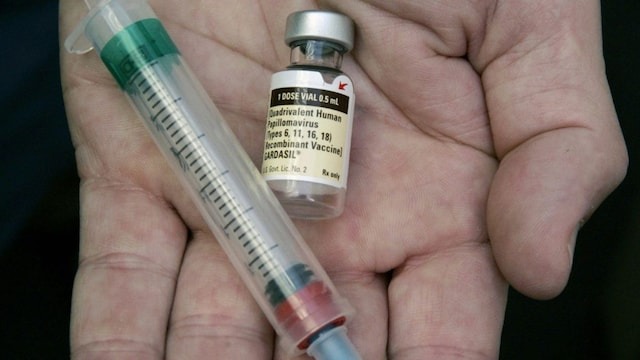_1211725591.jpg)
For couples trying to conceive, sexual intimacy is expected to be a positive and fulfilling experience. However, for some, the fear of painful intercourse (dyspareunia) creates anxiety, emotional distress, and relationship strain, making conception even more challenging. This often-overlooked issue can significantly impact a couple's fertility journey. Understanding the causes, emotional effects, and available solutions can help couples navigate this sensitive topic with confidence and support.
What Causes Painful Intercourse?
Pain during intercourse can stem from both physical and psychological factors. Identifying the root cause is the first step in finding relief.
Physical Causes
Several medical conditions can contribute to painful intercourse, including:
- Vaginal Infections – Conditions like yeast infections, bacterial vaginosis, or sexually transmitted infections (STIs) can cause irritation, inflammation, and pain.
- Endometriosis – A painful disorder where uterine tissue grows outside the uterus, leading to discomfort during penetration.
- Pelvic Inflammatory Disease (PID) – An infection of the reproductive organs that can cause chronic pelvic pain.
- Fibroids and Ovarian Cysts – These noncancerous growths can cause pressure, pain, or discomfort during sex.
- Hormonal Imbalances – Low estrogen levels, particularly after childbirth, menopause, or certain medical treatments, can lead to vaginal dryness and thinning, making intercourse painful.
- Vaginismus – An involuntary tightening of the vaginal muscles, making penetration difficult or impossible.
Psychological Causes
Emotional and mental health factors play a significant role in sexual pain and avoidance, including:
- Anxiety and Stress – Fear of pain can create a cycle of tension, making intercourse even more uncomfortable.
- Past Trauma – A history of sexual abuse or negative sexual experiences can lead to psychological distress, manifesting as physical pain.
- Fear of Intimacy – Relationship conflicts, performance anxiety, or body image issues may contribute to discomfort.
How Fear of Pain Affects Intimacy and Relationships
When intercourse is associated with pain, it can lead to avoidance behaviors that gradually impact the couple’s emotional connection. Over time, this fear can:
- Create distance between partners – One partner may avoid intimacy due to pain, while the other may feel rejected, confused, or helpless.
- Cause frustration and resentment – The inability to engage in pain-free intercourse can result in emotional withdrawal and dissatisfaction in the relationship.
- Lower self-esteem – The person experiencing pain may feel guilt, shame, or inadequacy, affecting overall confidence and well-being.
These emotional stressors can significantly reduce the chances of conception by limiting the frequency of intercourse and increasing tension in the relationship.
Impact of Painful Intercourse on Fertility
Couples struggling with dyspareunia may face reduced opportunities for conception. Fertility experts emphasize that timed intercourse is crucial when trying to conceive, but when sex becomes a painful ordeal, this process can feel more like an obligation rather than an intimate moment.
How Dyspareunia Affects Fertility:
- Avoidance of intercourse – The couple may have fewer chances of conception due to reduced intimacy.
- Increased stress and anxiety – Chronic stress can disrupt hormonal balance, leading to irregular ovulation or reduced sperm quality.
- Underlying conditions affecting reproductive health – Disorders like endometriosis and infections not only cause pain but also impact egg quality, implantation, and overall reproductive function.
Breaking the Cycle: Solutions and Treatment Options
Addressing painful intercourse requires a combined medical and psychological approach. Seeking professional guidance can help restore intimacy and improve fertility outcomes.
Medical Interventions
A gynecologist or fertility specialist can diagnose and treat the physical causes of painful intercourse. Common treatments include:
- Vaginal Moisturizers and Lubricants – Can help with dryness and discomfort.
- Hormone Therapy – Estrogen creams or other hormonal treatments may be recommended for postmenopausal or hormonally imbalanced women.
- Pelvic Floor Therapy – Helps with vaginismus and pelvic muscle tension, making intercourse easier over time.
- Treatment for Underlying Conditions – Infections, endometriosis, or fibroids may require medications, surgery, or specialized therapies.
Psychological and Emotional Support
- Counseling and Sex Therapy – Speaking with a professional can help overcome fear, past trauma, and relationship barriers.
- Cognitive Behavioral Therapy (CBT) – Helps in managing anxiety related to intercourse.
- Relaxation Techniques – Mindfulness, deep breathing, and gradual desensitization can make intimacy more comfortable.
- Open Communication – Couples should express fears, expectations, and boundaries to rebuild trust and comfort in their relationship.
Conclusion
Painful intercourse is a real and valid concern that can impact both a couple’s relationship and fertility journey. However, with proper medical treatment, emotional support, and open communication, couples can overcome this challenge and increase their chances of a healthy conception. Seeking help early can restore intimacy, strengthen relationships, and improve overall well-being.
Remember: No one should suffer in silence. Pain-free intimacy is essential for both emotional connection and successful conception, and professional support is available for those who need it.

 Desk
Desk Share
Share






